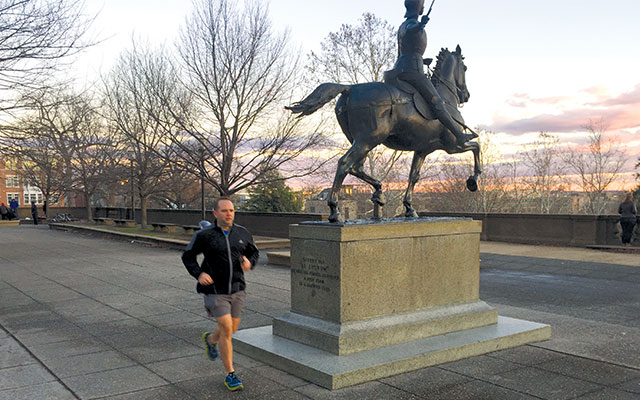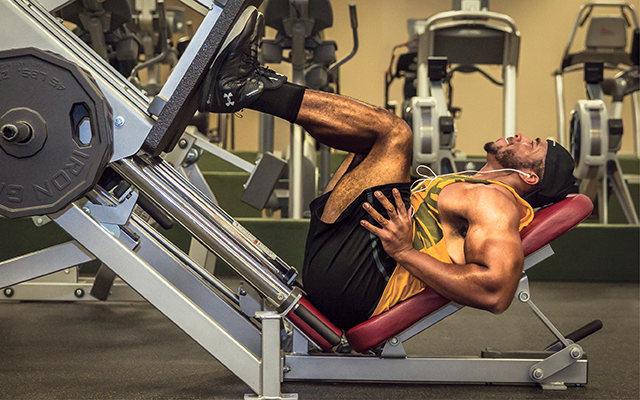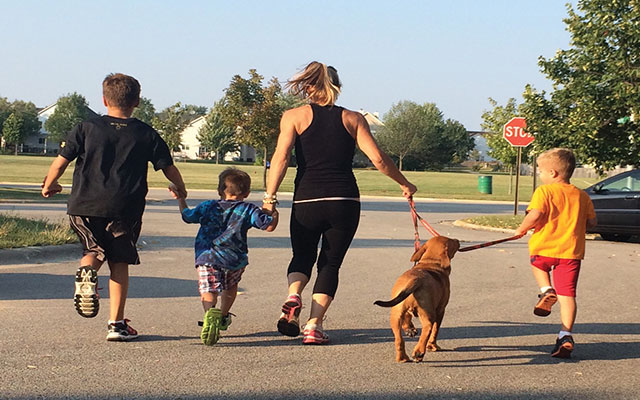It was January 2012 when, on the corner of 14th and Euclid in northwest Washington, D.C., a voice called me to change my life.
You’re going to run marathons.
I looked up. Where had that come from? The streets were empty, nary a car or runner in sight.
You’re going to run marathons.
I answered back, “What?”
So, you should get going.
At that point in my life, at age 31, I hadn’t run since I was a teenager. I was about 50 pounds overweight and struggling with depression and a spiritual malaise. Going into my third year of living in D.C., this was not the adventure I had been looking for when I moved from Southern California.
In the fall of 2009, after my move, I was fired from my job at a religious nonprofit. I felt I’d lost my sense of self. I had abandoned journalism to pursue what I felt was a higher purpose — working with faith-based organizations — and had found a dream job that completely aligned with my personal values. The firing was like a dishonorable discharge, and it rattled the core of my faith. It was devastating.
I went through six months of unemployment, searching for work during D.C.’s worst winter in decades. When I found a new job, it was at the Washington Post as a designer, which was great — except it was the last thing I wanted to do. I had left California specifically to leave newspapers.
The day after I heard the voice, I went to the local park and ran once around the edges, about 400 meters. I was out of breath and in pain.
Yet, it was enough to keep going.
The Starting Line
I took to running with almost a religious fervor. The distances were short but I ran them consistently. My nutrition was so-so and the depression was still palpable, although it slowly started to melt away.
Some of my coworkers signed up for a three-mile race in May 2012 and encouraged me to join them. I found a 5K training plan and went at it. The race course was flat and easy, though it still felt like the longest three miles of my life. But I did well, finishing in just under 30 minutes.
My competitive fire refueled, I set my sights on a half-marathon in D.C. the next spring. While terrified at the thought of running 13.1 miles, I wanted the challenge. I needed a routine and a goal. That half-marathon became my new mission.
I didn’t run more than 12 miles in a single session during the training. So at mile 12 of the race, going up North Carolina Avenue toward RFK Stadium, I dreaded the worst. Would I have to stop? I was tired but energetic. Joyful even. I completed the half-marathon in about two hours and 30 minutes.
While it was a success, I knew this was just a step in climbing out of the hole and becoming a healthier person. I took up high-intensity interval training and started to run longer distances. Together, these activities became a discipline. Learning to run, to squat correctly, to eat healthfully —each was a new calling that required my best effort.
Around this time, a friend told me about the Whole30 challenge and encouraged me to give it a try. It was a struggle, especially that first week of dealing with the initial shock of removing the excess sugar and carbohydrates from my diet. But I didn’t want to miss out on any of the process, no matter how hard it would be.
What came out of the Whole30 was a question of mindfulness, or lack thereof. Before the program, so much of my eating and drinking was done unconsciously and repetitively. I ate sugar to soothe myself, but also just because. Becoming mindful of how I ate and cooked (or the simple fact of consistently cooking for myself) was a major breakthrough in my journey.
Marathon Man
After the half-marathon, I knew I wanted to do a marathon — I just wasn’t sure where. I was planning a trip to South America, and, at the same corner of 14th and Euclid where the notion first took hold (true story!), I wondered if there was a race I could run there. When I got home, I went online to search for Argentinian races and discovered that the Buenos Aires Marathon was scheduled right when I would be in town.
My father and I traveled to Buenos Aires in October 2013. And, despite some difficulties getting to the starting line (I’m not fluent in Spanish), running the race was fun. I finished in just under five hours.
I often joke that I converted to the Church of the Long Run. My faith, while still Christian, became more of a contemplative nature. While running, I would listen to Gregorian chants while praying the Jesus Prayer or saying liturgy. They became a source of centering, placing myself firmly where I was in that moment. In each step, I strove for a connection with God and the world around me. I wasn’t fleeing my life. Rather, I was centering myself within it.
I told a reporter friend about my habit of listening to Gregorian chants. He was starting a health blog for the Post and asked me to write about it. That story led to a chance to write for the MisFits, a group of Post writers who cover all things fitness in the D.C. area and beyond.
For one of my stories about running form, I interviewed physician and running coach Mark Cucuzzella, MD, who told me the most important muscle in running is the mind. The key to running well, he said, is to run with joy and mindfulness. Always run with a beginner’s brain, seeking chances to grow.
Mindfulness is, and always will be, a challenge for me. It takes effort and energy; in many ways, it’s a form of fitness. The heart of my journey was getting not to the what but the how. How was I running? How was I eating? How was I living?
The Ultimate Challenge
Cucuzzella invited me to join him in running the Comrades Marathon, a 54-mile trek in South Africa known as the Ultimate Human Race, in May 2015. In running circles, the Comrades ultramarathon is spoken of with a reverence unlike other races. My fingers typed “yes” before my brain knew what I was doing.
Comrades was hard. Very, very hard. I suffered from nausea, leg cramps, and dehydration. Nearly halfway through the course, in the midst of my worst pain, I once again heard a voice.
You will finish this race on time.
Instead of questioning it, I decided to believe. I battled and finished in 11:54:38, just minutes before the 12-hour cutoff.
After Comrades, I was left with a new challenge. How do you go on after the Ultimate Human Race?
My answer is to begin again. There are other continents to conquer and more stories to write. Yet, my main purpose is to find a sense of centering wherever I am: being grounded in how I eat, how I work, and how I am in relationship with God, others, and myself. I’m driven by the calling I received that day in 2012 — to run well and live well.
Photography by Megan Finck
Success Summary
Meet: Mike Plunkett, 35, a journalist in Washington, D.C.
Big Achievement: Completing marathons, including the Comrades ultramarathon, on three continents.
Big Inspiration: “With running, it’s all the places in the world I can run!”
What Worked: A constant goal and a training plan.
What Didn’t Work: Ignoring good eating habits too frequently. Some sugar here, some extra carbs there — in training, it unfortunately can add up, and it slowed him down. “Being too rigid can have drawbacks, but I have to keep a mindset of always being in training (even if I’m not following a racing plan at that moment) and stay disciplined.”
Words of Wisdom: “The first step to any mission or calling is an invitation. You are invited to a healthier life, often in ways you may not realize. Be present in the moment, even if it’s painful or hard, and you’ll see a path to go forward.”




This Post Has 0 Comments